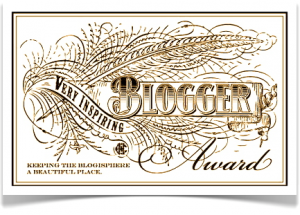
| Tracy Shawn, MA | First Published with Psychology Tomorrow Magazine as a main essay on August 2014 – Issue 13 |
INTERVIEW WITH: LUCY HORNER, AUTHOR OF TOLSTOY THERAPY: A FICTION PRESCRIPTION
Q: Your book, Tolstoy Therapy: A Fiction Prescription, is a beautiful narration of both your own and other people’s healing experiences through the technique called bibliotherapy. Please explain what bibliotherapy is and why you feel it’s such a positive answer to the emotional problems that plague us all.
A: Thank you, Tracy! I first came to bibliotherapy without quite realizing it. In 2012, I started my website, tolstoytherapy.com, with the aim of sharing how literature was helping me to overcome mental health problems and feel better in myself.
I soon found out that using literature as a healing tool had a name – bibliotherapy – and, after looking into it further, I came across so much positive evidence to support its use. It’s so easy to pick up a book, relax, and learn from the lives of characters.
Some wonderful readers got in touch with me to share their own stories, and I knew I had to compile their experiences of bibliotherapy together in one place to help raise the profile of bibliotherapy; this is how Tolstoy Therapy: A Fiction Prescription came into being. Considering my love for books, writing and researching Tolstoy Therapy was a brilliant project!
Q: You note that emeritus professor of cognitive psychology Dr. Keith Oatley has researched the healing power of literature through actual brain scans. Please explain what his findings tell us about how the simple act of reading a good book can help us lead better lives.
A: Yes, Dr. Keith Oatley has done some fascinating research. Combining his experience of psychology with his love for fiction (he’s a published novelist), Oatley explains in his work that – in psychological terms – fiction is like a simulation of the social world.
By looking at the brain while we’re reading, psychologists have demonstrated that the human brain doesn’t make much of a distinction between reading about an experience and actually experiencing it directly: the same neurological regions are stimulated.
In this way, fiction can help prepare us for the real world…to get ourselves emotionally ready for challenging events in our own lives, or even make us better at navigating social and emotional challenges.
Q: You list three types of books that may help people deal with depression. Please share these three kinds of books and why they may help.
A: I think that when it comes to something as individual, personal and – in many cases – serious as depression, you can’t just recommend any list of books to a person and expect it to make them feel better.
For one, in some cases it will be complementary to therapy and perhaps medication. Reading can make a big difference to certain feelings and situations, but you need to think about whether what you’re facing is fleeting or more serious.
Also, readers should think about which books have helped them in the past, and consider the genres and writing styles that affect their mood in the most beneficial way. There’s so much to it.
For this reason, I outline three broad types of book to help readers deal with low mood: lighthearted books to lift your mood, more gloomy books to relate to, and books to provide reassurance that you are not alone.
The first and third categories work best for me when I’m battling low mood. I found When God Was a Rabbit by Sarah Winman to be really uplifting, while J.K. Rowling’s own experience of depression – as characterized by the dementors in the Harry Potter series – made me feel a lot less alone.
However, several friends of mine enjoy reading gloomier books to help them see the good in their own lives when they’re feeling low; think Notes from Underground by Fyodor Dostoevsky (not for everyone!) There was an article about this in The Telegraph newspaper in 2013, in fact.
Q: You write: “Tolstoy helps us to understand that, despite our past experiences and our concerns for the future, we need to stop and appreciate the present whenever possible.”
This sentence is a wonderful explanation of the healing power of literature. Please tell us more about how literature can help maintain one’s belief in the goodness of life.
A: I believe that literature can really help us get out of our own heads and think about the wider picture. For me, Tolstoy works wonders when I’m feeling anxious. His characters frequently slow down, pay attention to their surroundings, and become overwhelmed by the beauty of nature and the world around them, even when everything seems to be in turmoil (read Resurrection and pay attention to the protagonist, Nekhlyudov, or consider Pierre’s meditations on life and meaning in War and Peace).
Q: What is the most important message that you wish to give your readers?
A: I think the quote that I use to open my book demonstrates how brilliant a healing tool literature truly is. It is by Charles William Eliot, and goes as so:
“Books are the quietest and most constant of friends; they are the most accessible and wisest of counselors, and the most patient of teachers.”
We can almost always turn to a book, for little or no cost, and it can have a great impact on our way of thinking and how we live our life. There’s something immensely powerful in realizing this, I think.
Q: Tell us about your website: www.tolstoytherapy.com and where people can purchase Tolstoy Therapy: A Fiction Prescription.
A: On my website I write about how books affect my own life and mental health, alongside the life lessons that we can gain from authors and their work. It’s a website about my reading journey and everything I learn from books, really, but I also enjoy recommending books to readers of my blog and for particular feelings and situations.
I released Tolstoy Therapy: A Fiction Prescription in the autumn of 2013, and it’s available on Amazon. Unfortunately it is only available as an ebook, but perhaps in the future print copies will be available too!
I love finding out how books have helped others. I find the messages I receive so interesting, uplifting and positive to read! The effect that books can have on the lives of readers is truly extraordinary.
ABOUT THE AUTHOR
Tracy Shawn lives and writes on the Central Coast of California. Her award-winning debut novel, The Grace of Crows, is about how an anxiety-ridden woman finds happiness through the most unexpected of ways—and characters. Dubbed a “stunning debut novel” by top 50 Hall of Fame reviewer, Grady Harp, The Grace of Crows has also been hailed as an accurate portrayal of generalized anxiety disorder and a healing opportunity to the reader by Anne Diamond, MS, LMFT. Visit www.tracyshawn.com for more information and purchase her acclaimed work at amazon.com/author/tracyshawn.
